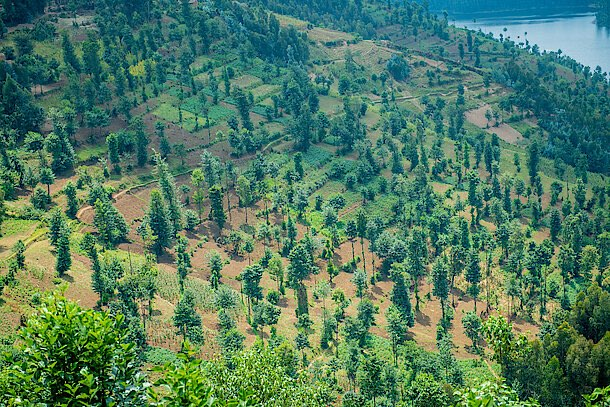
Rwanda demonstrated its commitment to environmental sustainability and climate resilience through a series of impactful initiatives in 2024.
The country embarked on a transformative four-year project to rehabilitate five wetlands in Kigali, aiming to reduce flood risks, restore biodiversity, and enhance urban landscapes while creating recreational spaces.
In March, Rwanda hosted the 38th Green Climate Fund (GCF) Board Meeting, underscoring its leadership in climate finance as the first nation to accredit a government institution for direct GCF funding.
Partnering with Peru, Rwanda also proposed hosting the Global Plastics Treaty Diplomatic Conference in Kigali, reinforcing its role in global efforts to combat plastic pollution.
May marked the launch of the Kigali Climate Talks in collaboration with Germany, creating a vital platform for dialogue and action on climate change and international obligations. Additionally, the government initiated a five-year agroforestry project under the Forest Investment Plan, integrating sustainable agriculture with forest conservation in the Southern Province and Gakenke District.
The Rwanda Green Fund approved Rwf 43.6 billion for 10 transformative investments through Intego, Rwanda’s NDC Facility, accelerating climate action and innovation. Waste valorization facilities were inaugurated at Nduba Dumpsite as part of the Waste to Resources Project, promoting sustainable waste management practices in partnership with the Global Green Growth Institute and the City of Kigali.
The Ministry of Environment launched the $39.1 million Congo Nile Divide Restoration Project to enhance resilience against climate variability through forest and landscape restoration. A Memorandum of Understanding was also signed with the Swedish Energy Agency to implement carbon market initiatives under Article 6 of the Paris Agreement.
Rwanda further advanced its sustainability agenda with the approval of $28 million for the Green City Kigali Project by the Green Climate Fund, showcasing a model for sustainable urbanization with low-emission infrastructure. The Government introduced a Climate and Nature Finance Strategy, designed to accelerate investments in climate action and nature conservation through innovative financing.
At the UN Climate Change Conference in Baku, Azerbaijan, Rwanda’s delegation highlighted the country’s potential as a leading destination for green investments.
These milestones reaffirm Rwanda’s position as an ambitious leader in climate action and sustainability, paving the way for a greener, more resilient future. (End)
